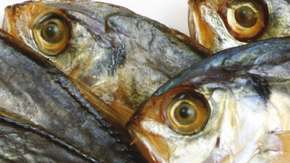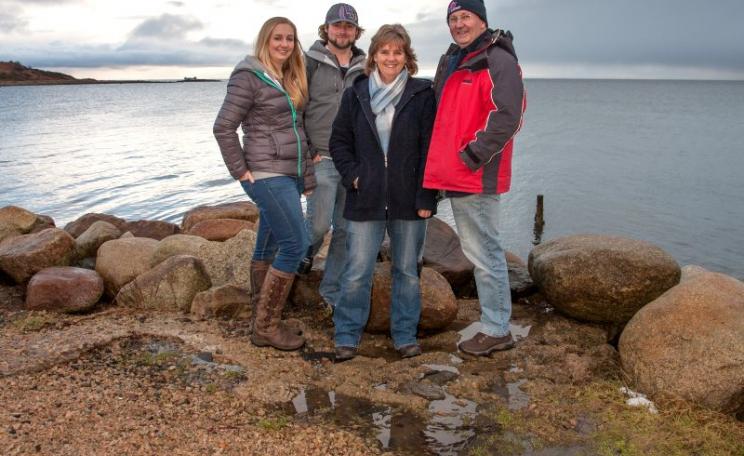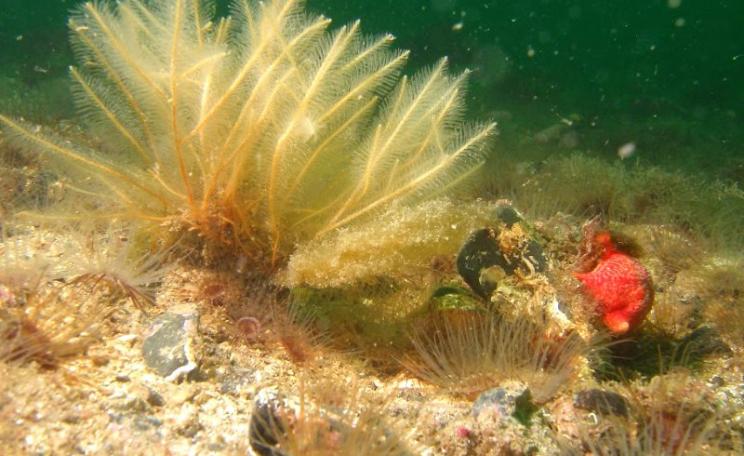EU subsidies have been used to fund controversial thonaille netting fleets that target bluefin tuna © OCEANA
EU subsidy payments are helping to fund the overfishing of depleted stocks such as cod and bluefin tuna, according to new research.
The Poseidon Aquatic Resource Management consultancy and Pew Environment Group analysed data from the EU's 'Financial Instrument for Fisheries Guidance' (FIFG), which paid almost £4 billion in fishing subsidies between 2000-2006.
The groups' researchers found that just 17 per cent of the subsidy payments went towards measures that would clearly result in a reduced fishing capacity such as scrapping vessels or positive environmental measures such as marine resource protection.
In contrast, 29 per cent helped to fund what the study defined as 'negative measures', including modernising the fleet and constructing new and more powerful fishing vessels.
Worst offenders
The worst offenders were Spain, Portugal and France. Spain took a massive 46 per cent of all subsidy payments and spent 41 per cent of that funding on negative measures.
In France, the most controversial use of the funding was for the thonaille netting fleets that target bluefin tuna. Campaigners say thonaille netting is indistinguishable from the controversial driftnets banned under EU rules, which reach for dozens of kilometres and lead to large amounts of bycatch.
'EU fisheries subsidies and the overfishing of valuable fish stocks are clearly connected,' said Tim Huntington of Poseidon Aquatic Resource.
'A key objective of structural policy in the fisheries sector was to bring the fishing capacity of the European fleet into line with available biological resources.
'We identify that FIFG funding has not achieved the intended net fishing capacity reduction and, in some fleet segments, has led to fleet capacity increases. This has contributed to the worsening status of some stocks and has hindered the recovery of other stocks, as well as having had associated negative impacts on marine environment,' concluded the study.
Illegal activities
The study, also found that in other countries, including the UK, companies that broke fishing rules did not stop receiving further funding. Only in Italy and Poland was any attempt made to link funding approval to compliance with fishing regulations.
Spain and Portugal, which both spent the lowest proportions of the funding on policing fishing regulations, were found to have the highest ratio of inspections resulting in infringement rates.
Lack of transparency
The study's authors said they were stopped from analysing the funding from current subsidy scheme, the European Fisheries Fund (EFF), running from 2007-2013, because of new EU disclosure rules.
'Transparency has been removed with the new funding instrument. The public have a right to know what they have funded,' said Markus Knigge, policy and research director at the Pew Environment Group.
'Fish stocks are a public resource that the European Commission and member states are responsible for managing sustainably on our behalf. Instead public monies have funded overfishing, with devastating effects on the marine environment and fisheries dependent communities.'
European Commission response
A spokesperson for the European Commission said the problems identified with the old subsidy system, the FIFG, were well known and had been corrected.
'The principal element of the criticism - the fact that FIFG through subsidising the construction and modernisation of new vessels contributed to the increase in the fishing capacity - was recognised in the 2002 CFP reform, and abolished at the end of 2004.
'The new EFF [European Fisheries Fund, introduced in 2007] does not cover aid for the construction of new vessels - the most criticised element in the PEW report,' said the spokesperson.
The European Commission is due to publish its own analysis of how the funding has been used in April.
Useful Links
Fish Subsidy website
| READ MORE... | |
 |
INVESTIGATION How can we have fish tomorrow? Ask the past Dismissed initially as a good storyteller but nothing more, environmental historian Poul Holm has mapped the history of marine animals in such detail that it is having profound impacts on our current understanding of the oceans |
 |
NEWS Big fish farms not necessarily most polluting Aquaculture industry urged to look at location and management techniques to reduce the environmental impact of rapidly expanding sector |
 |
GREEN LIVING To farm or to fish - does aquaculture have the answer? Our oceans are suffering from chronic overfishing - but are fish farms any better for the environment? Matilda Lee weighs up the piscine pros and cons in the battle to save world stocks from collapse. |
 |
INVESTIGATION Selling Indonesia's coast for cheap prawns and profit In an exclusive investigation, the Ecologist Film Unit reveals the impact of Indonesia's plans to privatise its entire 90,000 km coastline |
 |
BLOG Atlantic Rising: State of the fishing industry in Ghana Unsustainable fishing practices and declining catches are forcing Ghana to start importing fish |







